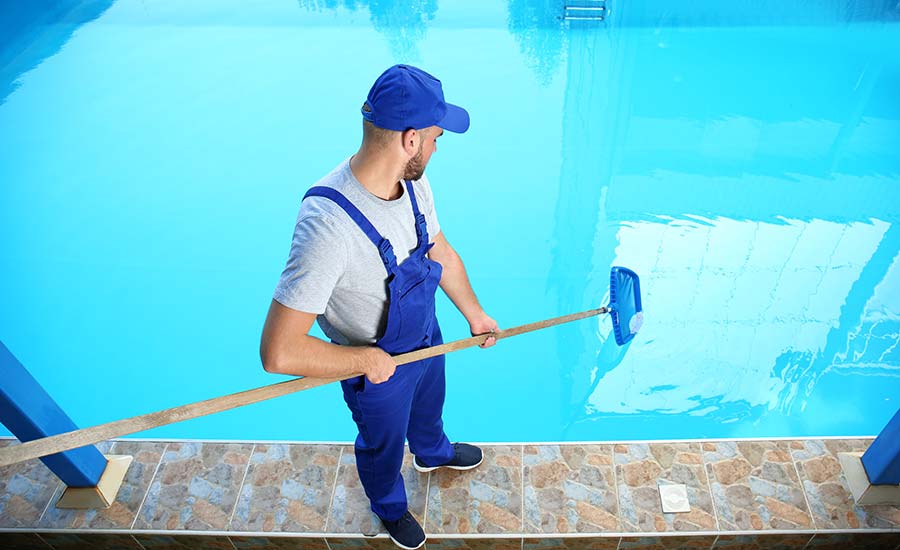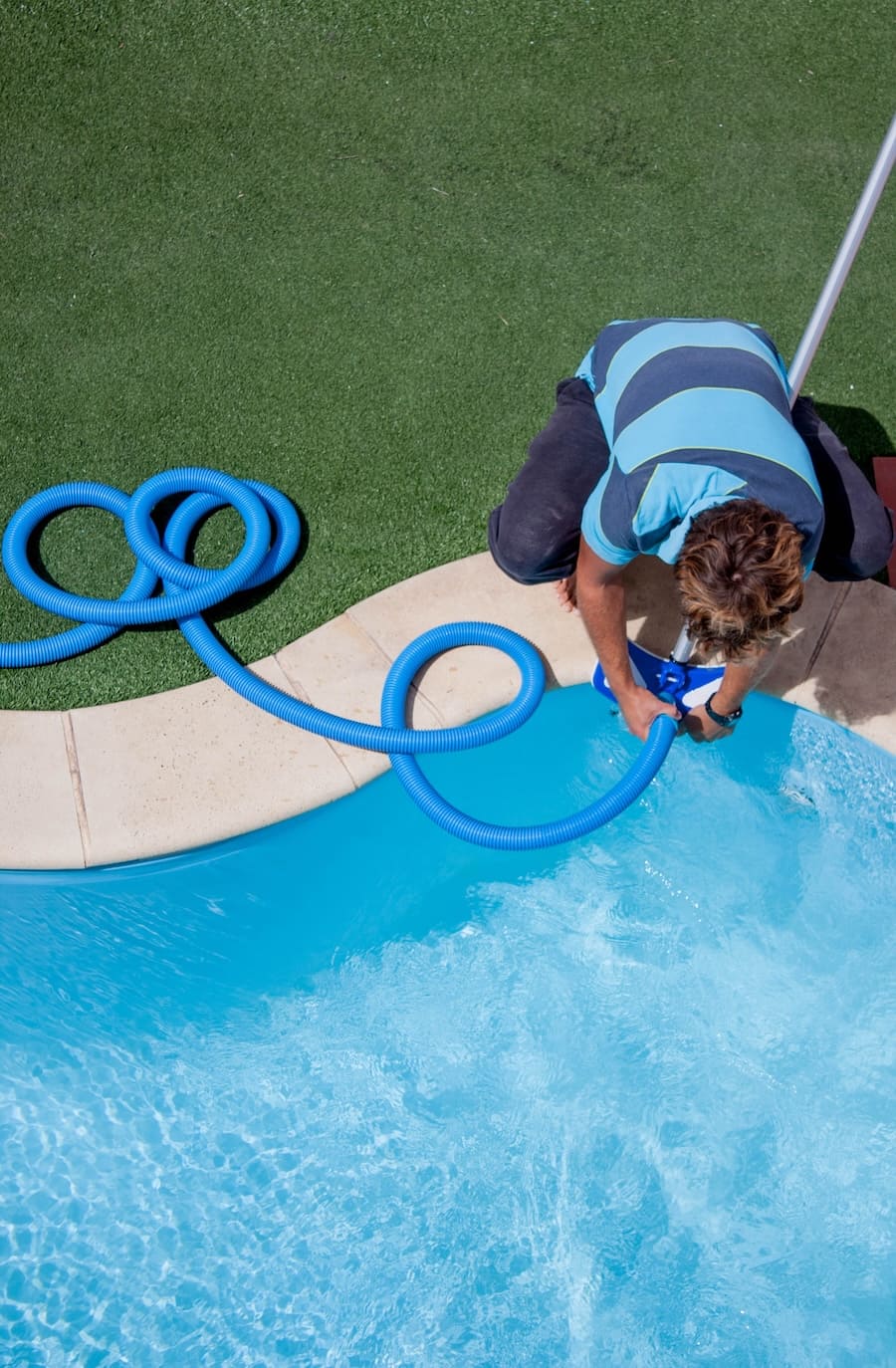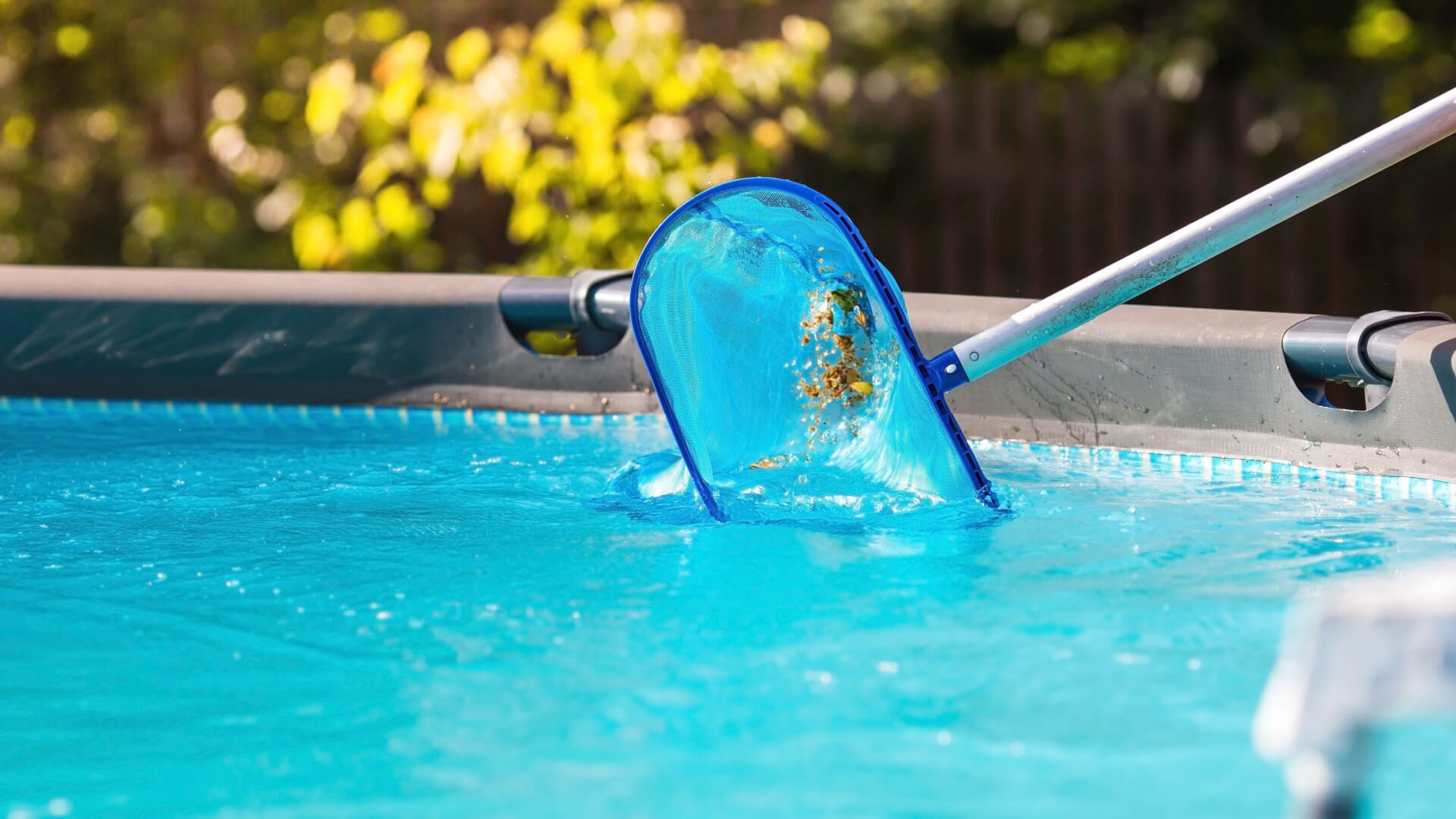Affordable Pool Cleaning for a Sparkling and Safe Swimming Experience
Affordable Pool Cleaning for a Sparkling and Safe Swimming Experience
Blog Article
Important Pool Upkeep Tips to Keep Your Water Sparkling Clean
Preserving a beautiful pool calls for an organized technique to water care and sanitation, which eventually contributes to both the aesthetic charm and longevity of the pool itself. Sticking to these fundamental techniques not just boosts the clearness of your swimming pool water however also safeguards against potential problems that could escalate into costly repairs.
Test Water Chemistry On A Regular Basis
To make sure a satisfying and secure swimming experience, routinely checking water chemistry is necessary. Correct water balance not only improves swimmer convenience but likewise secures swimming pool tools and surface areas. The primary chemical criteria to keep an eye on consist of pH, chlorine levels, alkalinity, and calcium firmness.
pH levels must be kept between 7.2 and 7.8, as this variety lessens skin and eye irritation while maximizing chlorine performance. Chlorine levels must preferably be between 1-3 components per million (ppm) to provide sufficient hygiene without causing unpleasant smells or irritation. Total alkalinity, which acts as a barrier for pH, need to be maintained between 80-120 ppm to support water chemistry and prevent fluctuations.

Keep the Swimming Pool Filter Clean
Preserving proper water chemistry is just part of reliable pool treatment; keeping the swimming pool filter clean is just as crucial for ideal efficiency. The pool filter plays a crucial function in removing particles, dust, and pollutants from the water, making certain a satisfying and safe swimming atmosphere. With time, filters can end up being obstructed with particles, which can substantially reduce their effectiveness.

Additionally, check the stress scale on your filter system. A stress increase of 8-10 psi above the typical operating range generally suggests that it's time for cleaning. Neglecting to maintain a clean filter can result in poor water blood circulation, out of balance chemistry, and boosted strain on the pool pump, eventually resulting in higher energy costs and potential devices failure.
Skim and Brush Often

Brushing the swimming pool wall surfaces and flooring is just as crucial. It helps eliminate algae, dust, and various other impurities that might hold on to surfaces. This task should be done at the very least once a week, concentrating on locations with bad flow, such as steps and edges - Pool Inspection. Utilize a pool brush with a suitable bristle type for your swimming pool surface area-- nylon brushes for vinyl or fiberglass pools, and stainless steel for plaster or floor tile surface areas.
Maintain Appropriate Water Levels
Maintaining the pool surface clean via regular skimming and brushing significantly adds to general water quality, yet preserving proper water degrees is similarly important for optimum pool health. The water degree in your swimming pool must ideally go to the axis of the skimmer opening. This ensures that your skimmer can properly eliminate debris and drifting contaminants, protecting against accumulation that can endanger water clearness and quality.
Reduced water levels can cause pump damage, as the pump might run dry, risking pricey repair work. Alternatively, exceedingly high water levels can create water to overflow, diluting chemical balances and developing an undesirable mess. Regularly examine your pool's water degree, specifically after heavy rains or considerable evaporation because of heat.
Additionally, consider variables such as swimming pool usage, ecological problems, and the kind of water attributes in your pool, as these can affect water degrees. If you discover on your own regularly fighting fluctuating water levels, mounting a swimming pool cover can help minimize dissipation and maintain a steady level. Eventually, regular surveillance and change of water levels will certainly aid ensure a healthy swimming atmosphere and extend the life of your swimming pool tools.
Arrange Seasonal Upkeep
Comprehending the importance of seasonal maintenance is vital for guaranteeing your swimming pool continues to be in optimal problem year-round. Each season brings one-of-a-kind obstacles and problems that can influence the water top quality and architectural honesty of your pool. By scheduling upkeep jobs regularly, you can avoid small concerns from escalating into expensive repair services.
In the spring, focus on opening up the swimming pool, examining the purification system, and stabilizing the chemical degrees. This sets a solid structure for the swimming period - Pool Inspection. As summer season strategies, regular maintenance such as skimming debris, brushing surface areas, and surveillance water levels ends up being important to preserve cleanliness and safety and security
As loss shows up, get ready for cooler temperature levels by removing leaves and particles, and consider winterizing your swimming pool if it will not be used throughout the colder months. This includes lowering water levels and including winterizing chemicals to protect versus cold.
Throughout the winter months, routine look at the pool cover and tools are essential to make sure whatever stays intact. By sticking to a seasonal upkeep timetable, you can extend the life of your swimming pool and maintain it inviting and secure for use year-round.
Conclusion
Routine swimming pool upkeep is vital for guaranteeing water quality and security. By continually evaluating water chemistry, keeping the swimming pool filter in optimal condition, and performing regular skimming and cleaning, pool proprietors can efficiently prevent algae development and other concerns.
By preserving appropriate water chemistry, swimming pool owners can ensure a risk-free atmosphere, lengthen equipment life, and enhance general enjoyment of their swimming pool.
Maintaining proper water chemistry is only part of efficient swimming pool treatment; keeping the pool filter tidy is just as crucial for ideal performance. Make use Pool Maintenance of a swimming pool brush with a suitable bristle type for your pool surface-- nylon brushes for vinyl or fiberglass pools, and stainless steel for plaster or ceramic tile surface areas.
Maintaining the pool surface tidy via frequent skimming and brushing considerably contributes to general water high quality, however preserving correct water degrees is just as vital for optimum swimming pool wellness.In enhancement, take into consideration factors such as swimming pool use, ecological problems, and the kind of water functions in your swimming pool, as these can affect water degrees.
Report this page